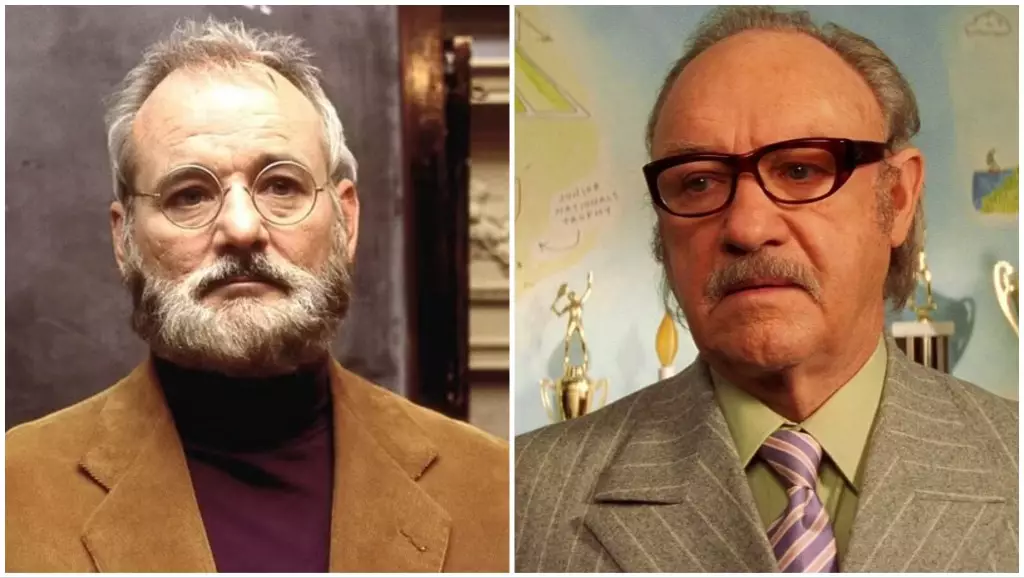Gene Hackman, an iconic figure in the world of cinema, has left a considerable mark on film history, celebrated for his compelling performances and unique ability to bring complex characters to life. His death last Thursday has prompted an outpouring of tributes from colleagues and fans alike, with Bill Murray leading the chorus of voices honoring Hackman’s impact on American film. Murray’s recollections provide a glimpse not only into Hackman’s talents but also into the complexities of his personality.
In his tribute, Bill Murray was candid about Hackman’s reputation on set. He referred to him as a “tough nut”, illustrating that beneath the surface of Hackman’s stellar performances lay a challenging disposition that could unsettle even seasoned professionals. This acknowledgment highlights an often-overlooked element of the acting profession: the interplay of talent and temperament. Murray’s experience while filming *The Royal Tenenbaums* speaks volumes about the dynamic between established actors and emerging directors, particularly the sometimes adversarial nature of their interactions. When Murray recalls how Hackman often clashed with director Wes Anderson—whom he perceived as a “punk kid”—it reflects a reality that many young filmmakers face: the struggle to earn respect from industry veterans who have long been set in their ways.
Hackman’s behavior on set, as described by Murray, invites further analysis. In one instance, Murray observed Hackman execute numerous flawless takes while waiting for a fellow actor to catch up. The juxtaposition of Hackman’s precision against moments of evident frustration encapsulates the duality often seen in talented artists: the drive for perfection can sometimes morph into irritation towards colleagues. This complexity emphasizes that the finest artists, while often brilliant, can also be difficult and demanding. Murray’s accounts portray Hackman not merely as a prickly figure, but also as someone deeply invested in the craft and the collaborative process of filmmaking, a characteristic indeed commendable in an industry defined by teamwork.
Beyond their on-set encounters, Murray’s comments on Hackman’s eventual reflection on his behavior also provide a meaningful perspective. Hackman’s admission that he “acted like a jerk” suggests a level of self-awareness that is both rare and admirable in public figures. It underscores a broader theme in the industry—acknowledging one’s shortcomings while striving for excellence. In context, Hackman’s interactions with Anderson serve as a reminder of the pressures faced by performers and directors alike, making their eventual successful collaborations all the more significant.
Tragically, the circumstances surrounding Hackman’s death have remained shrouded in mystery, prompting investigations by local authorities. Their need for a search warrant has added a somber layer to the story of a man whose life and career, characterized by brilliance and complexity, has concluded under uncertain conditions. It serves as a poignant juxtaposition to the vibrant legacy Hackman leaves behind—one filled with remarkable contributions to cinema, a challenging spirit, and an open-ended inquiry into the final days of his life.
In remembering Gene Hackman, we remember a titan of the film industry, a man of tremendous talent, and a figure whose journey will continue to spark discussions and reflections for years to come.


Leave a Reply